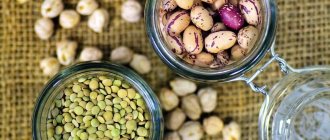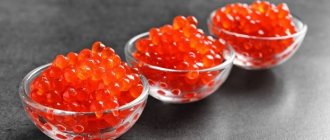Sugar is considered one of the main “enemies” of health among foods. It is excessively high in calories, and is absorbed very quickly, which threatens the appearance of excess weight and interferes with getting rid of it, and the high glycemic index makes it a real poison for people suffering from certain diseases, in particular diabetes. In addition, sugar increases appetite, causing overeating. It is not surprising that advocates of healthy eating and those who want to lose weight try to limit their consumption or even completely eliminate sugar from their diet, but giving up the usual taste sensations is not so easy. All kinds of sugar substitutes come to the rescue.
Read this article about which sweetener is considered the safest for health and has the best taste. Today's material contains all the popular types of sweeteners with a detailed analysis.
How to choose a sugar substitute?
You should approach the choice of your sweet sugar substitute responsibly, because you cannot say for sure which sweetener will suit absolutely everyone. It all depends on individual characteristics, goals and personal taste preferences.
In the NOCAS line, presented in the assortment of the company Mr. Djemius ZERO all sweeteners are absolutely safe. These are natural sweeteners without a bitter aftertaste and have zero calorie content. The composition contains only heat-stable components, which means they can easily be used in cooking. “Erythritol + Stevia”, “Erythritol + Monk Fruit”, “Erythritol + Cane Monk Fruit”, “Erythritol + Sucralose” - try it and find your ideal supplement among them.
Side effects
Any sugar substitute used for type 2 diabetes has a certain safe dose that does not allow side effects to develop. With more intake of the product, there is a risk of encountering negative manifestations.
- Pain in the abdominal area.
- Diarrhea.
- Bloating.
- Vomit.
- Nausea.
- Fever.
bloating
It is worth considering that synthetic substitutes have more side effects. These are oncological formations and disorders in gynecology.
Natural sugar substitutes for type 2 diabetics are safer, but they provoke an allergic reaction.
Is there a sugar addiction?
Is it possible to imagine a more controversial product than sugar? Believe me, it's difficult. No other edible substance so closely combines obvious benefits and unconditional harm. Moreover, both are undeniable and have long been understood even by non-specialists.
The benefits of sugar lie in the effect it has on our body. The glucose supplied to us by this substance is a powerful source of energy necessary for the functioning of the muscular, circulatory and other systems of the body. In fact, the main goal of our nutrition, digestion and metabolism is precisely to provide the body’s cells with an uninterrupted supply of glucose - in the required quantity and throughout the whole day.
At the same time, excess sweets are extremely harmful and sometimes even dangerous for humans, as they can cause various diseases. The most common is diabetes. It is considered the main cause of blindness in the world, and is associated with an increased risk of cardiovascular pathologies, kidney failure, foot amputation due to poor circulation and the threat of gangrene. Despite the fact that the main factor in the development of the disease is genetic predisposition, the risk of getting sick increases if you abuse sweets.
Excessive indulgence in foods containing sugar can provoke the development of the disease not only in those who have a predisposition to it, but also in those who do not have one. This is because excess glucose that is not used by the body as energy is stored as fat and stored in adipose tissue. During fasting or heavy physical activity, these reserves are consumed. The growth of adipose tissue, however, is not a favorable factor, especially for those who receive food on time and lead a sedentary lifestyle. In the absence of energy expenditure, glucose stored as fat in reserve remains unclaimed. These fat deposits, in turn, create insulin resistance, which means they interfere with the proper functioning of insulin, the hormone responsible for the absorption and processing of glucose. Disturbance in the functioning of this hormone leads to an increase in blood sugar levels, which is why diabetes develops over time.
Why is it so difficult to give up sugar? Almost always this is accompanied by a struggle with strong temptation. It usually takes 3-4 weeks to stop thinking about sweets. This is a real addiction, and one of the most common.
Its appearance is explained simply - in nature there are no poisonous or potentially hazardous products with a sweet taste. Sweetness seems to signal that this fruit is ripe and can be eaten. And the first taste felt by a baby mammal is sweet, this is the taste of mother’s milk, which contains a significant amount of carbohydrates. It turns out that evolutionarily we associate the feeling of sweetness with safety, benefit and security.
Even the habit itself is most often formed in early childhood. And it is a diet with a predominance of carbohydrates in the diet that provokes the increase in the number of so-called modern diseases (obesity, diabetes, hypertension and even caries) observed in recent years.
It’s really worth making a remark. Sugar addiction is an addiction to a highly refined carbohydrate, which in fact is not even a food product, but a chemical compound. White sugar, as everyone knows it, does not occur in nature, but is the result of complex production.
During dietary correction or as a compromise, when the habit is firmly entrenched in a person’s life, experts advise switching to sugar substitutes. And for people suffering from various digestive disorders, sweeteners become an essential element of therapeutic nutrition for weight loss.
Safety
At the moment, there is no conclusive evidence of the harmful effects of sweeteners on health.
From time to time, scientists present experiments with the conclusion that sugar substitutes can cause migraines, depression, intestinal problems, etc. However, the results of the studies are contradictory: in one experiment the risk is confirmed, in another it is not. And although the conversation, as a rule, is about the dangers of large doses of sweeteners, the headlines of some scientific articles maintain an alarming tone among both doctors and sweet tooths. Don't worry about this: all sweeteners that end up on store shelves receive appropriate approval. Potentially dangerous products simply do not reach consumers.
— Reasonable consumption of both sweeteners and sugar does not pose a threat to health, —
says the nutritionist.
- However, do not forget: losing extra pounds does not mean gaining good health. When choosing a sweetener, it would be good to consult with a nutritionist or therapist. A competent opinion will help in choosing “your” product.
Sweeteners and sweeteners: how do they work and how are they different?
So what is sweetener made from? All sugar substitutes should be divided into two large groups: natural and synthetic.
Artificial dietary sweeteners, like the “sweet drug” itself, are chemicals that our taste buds perceive as sweet. Interestingly, the energy value of sweeteners is the same as that of sugar, about 4 kilocalories per 1 gram. At the same time, the so-called dose-dependent calorie content is less than that of a popular competitor. By consuming sugar substitutes, the glucose level does not rise so high, and the stimulation of insulin release from the pancreas becomes several times less. It is these zero values that make sweeteners so tempting for people watching their figure or insulin levels.
Synthetic sugar substitutes are obtained in laboratories, and therefore manufacturers can rarely boast of a truly valuable composition (unless, of course, they enrich it with vitamins and minerals). Many of them are not digestible, are eliminated from the body almost one hundred percent and are xenobiotics - products that do not interact with our body in any way. The result is essentially the illusion of sweet food, in which there is nothing but taste.
Most often, synthetic sweeteners are consumed by people on a strict no-carbohydrate diet or suffering from diabetes. Sweeteners are commercially available in the form of tablets, powders, syrups and granules.
Natural sweeteners are obtained by processing plants containing sugars. They differ in that they affect our metabolism: they are absorbed into the intestines and enter the blood, changing its composition and insulin levels. Almost all of these sweeteners are caloric and have a glycemic index (as opposed to artificial ones). For example, the calorie content of regular refined sugar is 387 kcal per 100 g of product, and its glycemic index is 60–65. At the same time, natural sweeteners are good because they are not “empty” sugar, but are products that contain a number of healthy substances.
Unlike sweeteners, sweeteners differ from sugar in their structure. They have a very low or even zero calorie content, but are tens or even hundreds of times sweeter than their counterpart and its substitute. The requirements for such substances are the same. Any sweetener must be sweet and at the same time harmless, not affect carbohydrate metabolism and dissolve in liquid. There are also some differences in the effects on the body between sweeteners and sugar substitutes. Sweeteners are not included in metabolism, are not absorbed and are excreted from the gastrointestinal tract without consequences. Glucose remains at the same level; insulin does not participate in processing.
Related links
- You should not replace sugar with synthetic sweeteners - the TV show “Live Healthy” with Elena Malysheva (https://jitzdorovo.ru/jit-zdorovo/pro-edu/7308-chto-zdorovee-saxar-protiv-saxarozamenitelya.html).
- What are the dangers of artificial sweeteners - the TV show “Health” with Elena Malysheva (https://jitzdorovo.ru/zdorove/580-saharozameniteli).
- “Healthy Russia” analyzes the shortcomings of past generation sweeteners and recommends stevioside – 2016 data on the official website of the state program (https://www.takzdorovo.ru/pitanie/zdorovoe-pitanie/chem-vredny-saharozameniteli/).
Types of natural sugar substitutes: pros and cons
Fructose
Fructose is perhaps the most famous type of fast carbohydrate in nature. It is present in berries, fruits and fruit plants. Oranges, bananas, apples and peaches contain the most fructose. Honey contains about 80%.
In fact, fructose is similar to regular sugar, but has a lower glycemic index, due to which it has virtually no effect on insulin production. This is why fructose is often recommended for diabetics.
However, it is not correct to consider fructose a safe substitute for sugar. Although it does raise blood glucose levels more slowly when consumed, it can cause metabolic problems. The use of fructose syrup in drinks is believed to be one of the causes of the obesity epidemic in the world.
Erythritol (erythrol)
It is a natural sweetener that is gaining popularity. It belongs to a family of sugar alcohols known as polyols, which are rich in fruits and vegetables such as melon, grapes, watermelon, mushrooms and fermented foods: soy sauce. It is also called “melon sugar”.
In Russia, erythritol is sold in powder form or in the form of syrups. Often used in sweets intended for diabetics or people watching their diet. Produced under code E968. The taste of erythritol is similar to that of regular sugar, but is only 70% sweet.
Sorbitol
Sorbitol is also widely used in the food industry. This sweetener is found naturally in berries and fruits, such as pears, apples, peaches and apricots. The sorbitol content is high in red rowan berries, to which it owes its name. The substance is also produced by the human body during metabolism. But if the dosage is exceeded, it can have a bad effect on the functioning of the gastrointestinal tract.
Xylitol
This natural sweetener is found in corn cobs, cotton seed hulls, and some fruit and vegetable crops.
It tastes almost as sweet as sugar, and the energy value of xylitol is 367 kcal. The advantage of xylitol is that it restores the natural acid-base balance in the oral cavity, preventing the occurrence of caries. Therefore, it is often added to chewing gum. But like sorbitol, xylitol can cause diarrhea in large quantities.
Stevioside
Stevioside is an odorless, white crystalline powder with a strong sweet taste. The raw material for producing the sweetener is stevia leaves. The sweetness of stevioside is approximately 250 times that of sugar. It is involved in metabolism, but has almost no effect on the body. In addition to its main function, this substance has medicinal value. Stevia glycosides have a pronounced bactericidal effect. Some consumers consider the sweetener to have a specific aftertaste.
Inulin
Inulin is found in a fairly large number of plants. For example, its sources can be garlic, artichoke and Jerusalem artichoke tubers. But the greatest amount of inulin is contained in chicory roots and that is why this plant serves as the main industrial raw material for its production. The consumption of inulin, a natural soluble dietary fiber, is vital for our digestion. And, at the same time, its content in the diet of a modern person is extremely small.
Inulin plays the role of a kind of scrub for the intestines. With regular and complete intake into the body, it prevents the formation of constipation. As the substance moves through the digestive tract, it absorbs water, forming a gel mass: intestinal motility is stimulated and its walls are gently cleansed. Among the disadvantages are indigestion and allergies, although side effects are possible only due to individual intolerance.
Types of Artificial Sweeteners: Pros and Cons
Saccharin
Saccharin is the very first safe artificial sweetener and is 300 times sweeter than sugar. It is colorless crystals, poorly soluble in water. Today, saccharin is one of the most widely used sweeteners. It is approved for use in all food products in more than 90 countries. It is marked on the packaging as food additive E 954. If the dosage is exceeded, it can lead to the formation of gallstones.
Sodium cyclamate
Additive E952, better known as sodium cyclamate, is used in the food industry as a sweetener. This chemical is ten times sweeter than sugar. In addition, the sweetener is heat-stable and does not lose its sweet taste in baked goods or other heat-treated desserts. However, some consumers find products with sodium cyclamate to taste unpleasant.
Among the disadvantages is also insufficient study, and if the permitted dose is exceeded, it can lead to kidney problems.
Aspartame
Aspartame, also known under the names Sladex, Nutrasvit, Aspamix, is a synthetic sweetener that is not a saccharide. Used as a food additive and as a sugar substitute.
The substance looks like white crystals, odorless, almost 200 times sweeter than natural sugar. It has been well studied, but when heated it loses its sweetness, so it is only suitable for food products that are not subject to heat treatment. Having a minimum calorie content (0-4 kcal per 100 grams of product), Aspartame is usually not taken into account when calculating calories. A small amount of aspartame is needed to create a sweet taste, so its contribution to the calorie content of the food is not taken into account. The sweetness of the dietary supplement is not immediately felt, but the aftertaste remains much longer than after consuming sugar.
Acesulfame potassium
Acesulfame potassium is a sweetener of synthetic origin, part of the group of anti-flaming food additives and glazing agents. In the international classification of food additives it is indexed E950.
The sweetener is almost 200 times sweeter than the original, has the same sweetness as aspartame, half the sweetness of saccharin and a quarter of sucralose. E950 has a bitter taste and a metallic aftertaste, so it is usually added to products in combination with sucralose and aspartame, achieving an almost natural sugar taste.
Sucralose
Sucralose is made by processing sugar, so they taste very similar. The sucralose molecule interacts more actively with the taste buds of the tongue, so that its sweetness is perceived 600 times more intensely than that of a high-calorie alternative. This product is heat stable: food containing sucralose can be baked and frozen. Taste, lack of calories and biological inertness have made sucralose widely popular. But along with its popularity came a high price. This is perhaps the main disadvantage.
Neotame
This sweetener is a chemical compound derived from a dipeptide consisting of amino acids, aspartic acid and phenylalanine. Neotame is a high-intensity modern non-calorie general purpose sweetener, 7000 - 13000 times sweeter than sugar. It is soluble in water and thermostable. It has a clean and sweet taste, identical to sucrose, with a gradual increase in the perception of sweetness and a long aftertaste.
To eat or not to eat
The benefits of using sweeteners in the diet have been proven in numerous studies.
Perhaps the most important recommendation is not to exceed the permissible daily dose. As a rule, the manufacturer indicates such information on the product packaging. She shouldn't be neglected. — The main complaint about artificial analogues is their special behavior during heat treatment, —
says Tatyana Musick.
— For example, aspartame and cyclamate do not tolerate high temperatures.
They decompose and can negatively affect the body. This should definitely be taken into account during culinary experiments. But sucralose, stevia, and erythritol are not afraid of temperature changes. Feel free to use them in your kitchen. It’s worth reminding: all sweeteners have a laxative effect. Take the time to look at the back of the product packaging or the sweetener itself. Even well-known analogues of sugar in tablets are consumed in a strictly limited dose.
— Tea drinkers would do well to have honey in their arsenal. It is a good source of vitamins and also has an immunomodulating effect. Just don’t add it to hot tea, as this will destroy the beneficial properties. Eat with a bite. One or two spoons will be enough, -
reminds me of a nutritionist.
Particular attention is paid to children's nutrition: on average, until the age of two, a child, in principle, does not need sugar. As for sweeteners, scientists agree: only stevia is suitable for baby food. Again, not earlier than two years.
Who needs sweeteners?
Diabetics
These are the main consumers of sugar substitute products. Most of the range of sweeteners began to be produced specifically for diabetics. With the correct selection of sweetener, people suffering from this disease do not have a sharp jump in blood glucose, and the speed of metabolic processes does not change. Low-calorie sweeteners do not have a negative effect on the central nervous system and vascular walls. Typically, diabetics are advised to take erythritol, stevia, and sucralose. Fructose, sorbitol, xylitol are allowed, but with restrictions due to their high calorie content.
Overweight people
When dieting, supplements that do not have energy value are recommended, i.e. with zero calories. Sweeteners have no effect on carbohydrate metabolism or biochemical cycles, which is why they are widely used in the fight against excess fat. Types of sweeteners allowed for calorie deficit diets: sucralose, erythritol, stevia.
conclusions
Now you can determine which sweetener to choose for yourself. If, of course, this is necessary for you. At least, I have listed the most commonly used and in demand sweeteners in this post.
Of course, it is better to do without sugar altogether, but few can do this. For example, when I was weaning myself from sweet coffee, I replaced sugar with milk, and soon the sweet taste of coffee became completely disgusting for me.
Well, if you have made your choice in favor of sweeteners, then do not forget that there should be moderation in everything. Before using any sugar-replacing additive in food, you need to read the recommended instructions, then the sweet life will not be bitter. Enjoy your tea!
What supplement do you use? Share your experience in the comments to my post.) Be healthy.
Valery Lebedenko was with you











